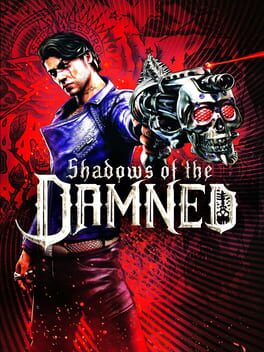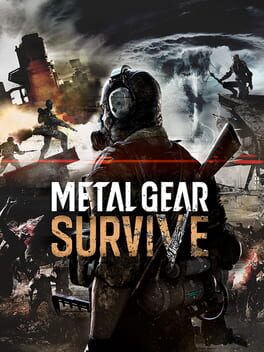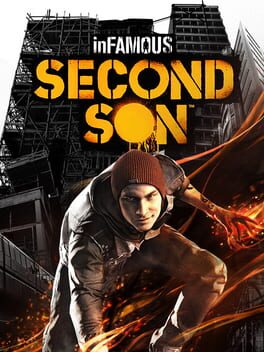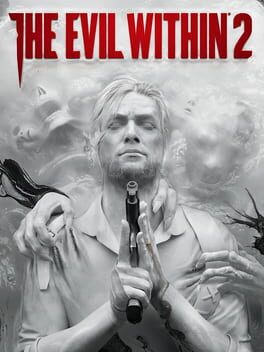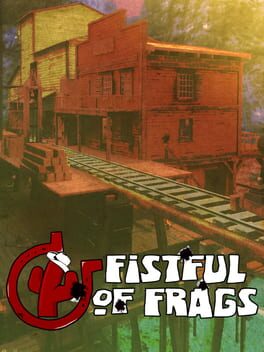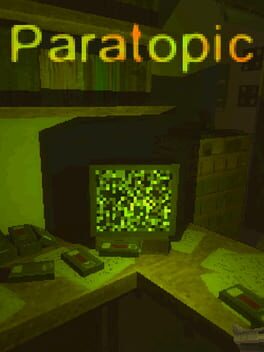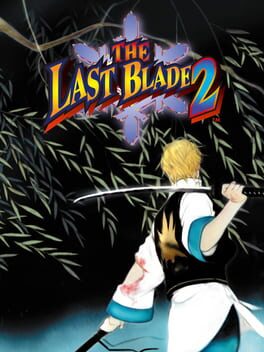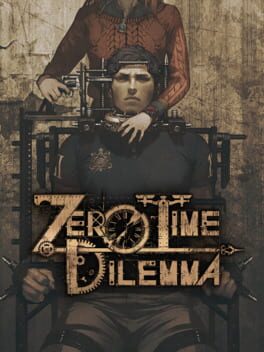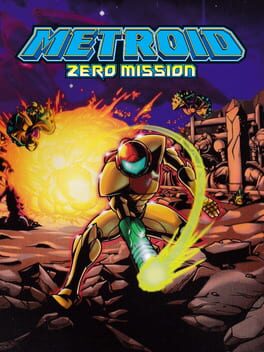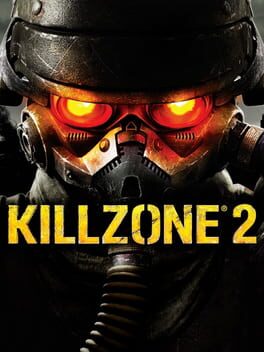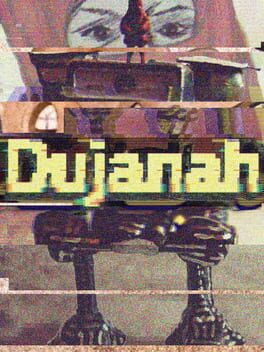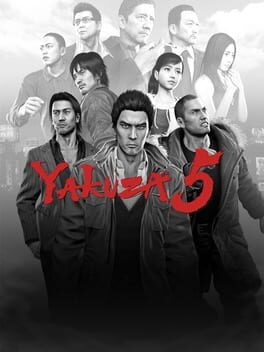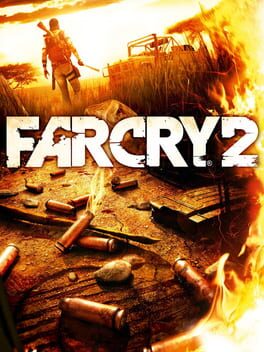KB0
came dressed in black ready to mourn immense creative stifling by the casual, profit-driven tyranny of western publishers, stayed for akira yamaoka's godlike score and for the comic and raunchy but often unrealized attempts to jab at the medium's hypermasculine paragons
if you haven't read kurayami dance and have any interest in suda or in this game's behind-the-scenes progression from kafkaesque horror to b-movie grindhouse romp, id highly suggest you do because it's insane how much of the language and iconography of that manga (itself a conceptual iteration on kurayami, a separate project that never saw realization, and the initial vision suda had for SOTD prior to ea's chokehold on creative direction) is reflected here; the manga presents a lovely middle ground between the two diametrically opposed visions at the core of SOTD's inception. shared in common are the ideas of an easy ride-influenced road trip, a talkative otherworldly companion, a journey through supernatural planes of existence, a mysterious castle separate from the general populace, and a few other smaller commonalities. still, SOTD opts for a much less thematically complete endeavour (with its sardonic and satirical throughlines of male insecurity as it relates to female sexuality feeling largely uninterrogated), and considering the pedigree behind the project it's shocking the gameplay really isn't up to snuff at all either, so it's harder to enjoy as just a thrilling and cheesy adventure. mikami somehow turned in a dull third person shooter with finicky controls and mechanics that trivialize the vast majority of the combat scenarios
it's difficult to fault any of this - reading kurayami dance, one gets the sense that suda wanted to make something more in line with flower, sun, and rain again and simply couldn't because EA didnt see those ideas as trendy or appealing to western markets - but it's a shame the end result is a poor experience that appealed to no one if sales data is anything to go by, that hasn't aged especially gracefully, and that games criticism of its era struggled to sum up, reconcile with, or effectively assess. the most common criticism was so of its time it almost hurts - the lack of a new game+ feature. no discussion of narrative, stilted mechanics, corporate meddling, what have you. just a run of the mill release to throw into the 7/10 pile and forget.
of the titles suda had a hand in in the early 2010s, produced in his absence from the director's seat, this is probably my second favourite, but it's really not saying much. there's interesting insight from the development of killer is dead that showcases yet more publisher strangulation - the implementation of gigolo mode, mandated by kadokawa. what's interesting here is that, commenting on gigolo modes inclusion, suda explicitly acknowledged that these features would probably harm grasshoppers reputation, especially when taken in conjunction with both this game and no more heroes 2, but there wasn't much he could do about it. that lack of control speaks volumes about the experiences on offer, and SOTD is the poster boy for that fraught process. playing through the game, i can say that as interesting as it could be at times? thank god that eras over and that grasshopper is moving on to self-publishing. at this rate, you'd be better off reading kurayami dance and playing travis strikes again than trying your hand at SOTD, both of which are more interesting to experience, are far more emotionally affecting, and reflect on this title in interesting ways. dissociative identity might be a trademark of sudas works, but it's always bleak when the game itself is undergoing an overt identity crisis
if you haven't read kurayami dance and have any interest in suda or in this game's behind-the-scenes progression from kafkaesque horror to b-movie grindhouse romp, id highly suggest you do because it's insane how much of the language and iconography of that manga (itself a conceptual iteration on kurayami, a separate project that never saw realization, and the initial vision suda had for SOTD prior to ea's chokehold on creative direction) is reflected here; the manga presents a lovely middle ground between the two diametrically opposed visions at the core of SOTD's inception. shared in common are the ideas of an easy ride-influenced road trip, a talkative otherworldly companion, a journey through supernatural planes of existence, a mysterious castle separate from the general populace, and a few other smaller commonalities. still, SOTD opts for a much less thematically complete endeavour (with its sardonic and satirical throughlines of male insecurity as it relates to female sexuality feeling largely uninterrogated), and considering the pedigree behind the project it's shocking the gameplay really isn't up to snuff at all either, so it's harder to enjoy as just a thrilling and cheesy adventure. mikami somehow turned in a dull third person shooter with finicky controls and mechanics that trivialize the vast majority of the combat scenarios
it's difficult to fault any of this - reading kurayami dance, one gets the sense that suda wanted to make something more in line with flower, sun, and rain again and simply couldn't because EA didnt see those ideas as trendy or appealing to western markets - but it's a shame the end result is a poor experience that appealed to no one if sales data is anything to go by, that hasn't aged especially gracefully, and that games criticism of its era struggled to sum up, reconcile with, or effectively assess. the most common criticism was so of its time it almost hurts - the lack of a new game+ feature. no discussion of narrative, stilted mechanics, corporate meddling, what have you. just a run of the mill release to throw into the 7/10 pile and forget.
of the titles suda had a hand in in the early 2010s, produced in his absence from the director's seat, this is probably my second favourite, but it's really not saying much. there's interesting insight from the development of killer is dead that showcases yet more publisher strangulation - the implementation of gigolo mode, mandated by kadokawa. what's interesting here is that, commenting on gigolo modes inclusion, suda explicitly acknowledged that these features would probably harm grasshoppers reputation, especially when taken in conjunction with both this game and no more heroes 2, but there wasn't much he could do about it. that lack of control speaks volumes about the experiences on offer, and SOTD is the poster boy for that fraught process. playing through the game, i can say that as interesting as it could be at times? thank god that eras over and that grasshopper is moving on to self-publishing. at this rate, you'd be better off reading kurayami dance and playing travis strikes again than trying your hand at SOTD, both of which are more interesting to experience, are far more emotionally affecting, and reflect on this title in interesting ways. dissociative identity might be a trademark of sudas works, but it's always bleak when the game itself is undergoing an overt identity crisis
2018
Snake: Weapons and equipment OSP (on-site procurement)?
Campbell: Yes. This a top-secret black op. Don't expect any official support.
MGSV’s musings on the ceaseless war economy, linguistic colonialism, and imposter syndrome come across as scattershot and for the grander duration of the title left me feeling completely hollow. promised as the world’s foremost tactical espionage title, the game’s tightly choreographed mechanics felt as though they had been slotted into a vacuum devoid of meaning because the series’ layered gameplay replete with a diverse selection of choices dissipated in the face of subpar and artificial level design, suggesting once and for all that a game should perhaps aim to be more than the mechanics that prop it up. the usual directorial gratuitousness of the franchise all but vanished, replacing its slick and controlled craftsmanship with boiler-plate camerawork and storytelling that lacked emotional drive even at its most off-kilter. rote base management mechanics returned from peace walker, only now larger in scope, more pervasive, and entirely less enjoyable. when everything in the world became a harvestable resource, fuel for your well-oiled war machine, the conscription of personnel became necessity and thus the game’s sense of freedom became shackled to optimal and highly exploitable gameplay loops designed not with stealth in mind per se but rather with efficient accumulation taking the helm, for which only a few tools became necessary. it’s this ambition to do more, have more, and create more that led to one of the most complicated releases of the decade, a game in which the vastness of it all dwarfed the hitherto established intimacy of the franchise to such an extent that communities became completely and totally fragmented over just how much of this mess was authorial intent or not – whether or not their ‘phantom pain’ was intended.
whatever the case, there is as much of MGSV that points to this reading being an intended success on the part of its author as there is evidence to suggest it really wasn’t; further fuel to the fire was added by the revelation of deplorable behind-the-scenes working conditions alongside missing content alluding to an entire chapter torn out of the game which seemed to suggest one of the medium’s most celebrated auteurs was ruthlessly disrespected and his work was severely compromised. if i had to do away with the hackish pseudo-academic veneer of this essay for a second, i would say that you really had to be there witnessing this unfolding narrative to understand its essence. MGSV was one of the most hyped games of its generation, kojima appeared to be on a tear with the revival of silent hill as an ip, and in one fell swoop silent hill returned to dormancy and kojimas professional career (and perhaps even, for a time, reputation) was shattered at konamis behest shortly following the release of MGSV. it seemed unjustifiably cruel, maybe even nonsensical considering the extensive relationship between auteur and company in addition to the guaranteed success he was capable of generating. understandably, people once again began investigating to see the subtext behind the material – they reinterpreted PT as a title that predicted KJP’s oblivion, they came to see optional ground zeroes missions as suggestive of konami erasing kojimas legacy. whatever it was that could be pored over was. i would put forward, however, that even amidst the deluge of scathing reports regarding konami’s corporate culture, the hazy details of kojima’s termination, and the constructing metanarrative that found foothold in forums and messaging boards, the moment that cemented konami’s legacy as the industry’s number one heel was barring kojima himself from attending the game awards in 2015, which geoff keighley seemed visibly perturbed about. no one likes to see a diamond dog kicked while he’s down.
a cultural context can be a powerful thing. by and large, this is what made metal gear survive destined for failure on the day of its announcement. making matters worse was just how derivative the experience seemed to be, not just in its reuse of MGSV’s assets but also in how it seemed to desperately ride the coattails of the uninspired and in-vogue survival movement, using the pristine fox engine to deliver on…zombie action that you’ve almost certainly seen elsewhere. kojimas lack of involvement, the genre from which it takes its inspiration, the strong emphasis on its multiplayer, inclusion of microtransactions, always-online DRM, and the pervading industry context prior to release were all signals that portended doom, the kind of game that releases straight into the ninth circle of hell – speaking personally, i was so disillusioned by MGSV that i hardly paid attention to it even as the engines of the youtube pseudo-critic mill roared to life to bludgeon a dead horse into unrecognizable paste. this games life and MGSVs failure were inexorably linked, so divine punishment needed to be meted out by the community and evidently, the calls for this game’s crucifixion exist to this day – i mean you’re right here on backloggd, which is only an infinitesimal slice of the internets demographic, and you can see how many 0.5’s this thing’s racking up, the grand majority of which i’ll infer haven’t even played it. this title’s only real contender as far as ‘worst average on backloggd’ goes is alien colonial marines, leaving aside vaporware like yandere simulator and titles like superman 64.
it’s been five years since MGSV and i knew there was a problem when i thought for even a second of returning to the world that it presented. ive put enough distance between the titles release and now that returning to reassess it seemed like it could be a prudent venture just as much as it seemed a waste of time for a product that bordered on dreck, one that i was grateful to have torrented. i was scanning online to see how cheap physical copies of the game were, i found metal gear survive for six dollars, then i blacked out and now i’m here, thirty minutes away from the aforementioned game’s finish line, writing about one of the internet’s most detested games on this platform. what transpired here was an experience that surpassed my frankly non-existent expectations and provided for some of my favourite thought exercises i’ve experienced in my time casually writing about the medium.
first and foremost: i believe auteurs are intrinsically intertwined with the art they create. they're important to the fabric of the text, particularly in jpn game development where it seems they tend to have a lot of input (though my discussion here does not intend to suggest games are not inherently intensely collaborative projects). for the sake of argument: remove yoko taro from the apocalyptic, nightmarish drakengard and you get the uncouth high fantasy of drakengard 2. diminish suda51s importance to the subversive hyperreality of no more heroes and you might wind up with the perverse, juvenile, borderline unrecognizable sequel, desperate struggle. that said, there are those rare few titles for which handing the keys over to a new party has worked out rather nicely – the evil within 2 saw shinji mikami pass the director’s seat to john johanas, resulting in an unexpectedly good work. it is my firm, resolute, and perhaps alarming belief that metal gear survive is one such game that belongs to the latter camp, making better usage of all of MGSV’s design tenets to create a more watertight title.
previously in this review i briefly touched upon my belief that MGSV is a game better understood through the lens of accumulation and resource extraction rather than through the traditional lens of espionage so that it may serve a metanarrative agenda; by contrast, what metal gear survive does is it literalizes this gameplay loop, grounding it in terms of a constant struggle against the game’s alternate dimension of dite to create a system that is far more personally affecting. MGSV’s itemization of the natural world sees even greater manifestation when you realize every time cost mechanic of the phantom pain has been rebalanced to work against you, which means time is your most tangible resource and the design throughline which promotes efficacy and planning in a manner exceeding MGSV. every second wasted means your hunger and thirst ticks down, every second spent crouchwalking or crawling expends stamina because your glutes aren’t deemed foxhound worthy (especially noteworthy because this is one small part of what makes the action/stealth dichotomy far more balanced than the game’s spiritual predecessor), almost every action in the game incurs some form of risk or otherwise depletes some kind of asset, and the flow of the game never once ceases to force your hand into action. this, i find, often throws new players for a loop – yes, the narrative of the early hours and the preceding tutorialization is rather weak because the game tries not to overwhelm its players, but it still remains surprisingly difficult once those hurdles have been overcome. one of the strongest assets of the game is its merciless nature which prevents players from having access to unearned conveniences or getting stuck in one optimal gameplay loop for too long, a problem with the vast majority of survival games (here is where i must point out that every single armchair critic who told you the game is poking zombies through a fence with a spear for thirty something hours is straight up lying to you. any dissent to the statement i just made is also a straight-up lie.) in the early game it is expected that you must adapt to your new surroundings or face immediate death – players, for instance, don’t have an easy way to obtain clean water until at least seven chapters in, forcing them to partake in dirty water and risk infectious peril numerous times. zombies might be dumb, and to a certain degree exploitable, but they are freakishly strong and unending in numbers. every chapter forces the player on further and further expeditions into uncharted territory even as they may struggle to balance effective base management and even effective self-regulation. defence units built can’t simply be recycled back into their base materials once constructed – there’s an expectation of commitment here present in every ordeal the game imposes upon its players.
the overarching context by which all these intertwined systems are facilitated is the dust, an overworld expanse covering the vast majority of the games maps. the dust is characterized by a few traits. firstly, expeditions into the dust require oxygen, which runs out rather quickly and can only be replenished by investing successively greater amounts of in-game currency (which you need for everything else from crafting, to base building, to upgrades) in order to facilitate productive expeditions – the designers smartly refused to allow players to upgrade this oxygen capacity by any truly convenient measure, meaning each expedition is wrought with monetary friction. secondly, the dust obfuscates the player’s surveillance by every means imaginable. the waypoint and GPS functionality of your map fizzles out within a few seconds, aside from scant few designated areas and paths where the signal is strong enough to restore functionality. the world is shrouded in a kind of quintessentially konami miasma, through which visibility is low and landmarking, route-planning, and testing player’s memory becomes a necessity. thirdly, one cannot save once they are in the dust – meaning that every expedition is naturally tense. these are the primary factors which ensure that no expedition is ever undertaken without planning beforehand or without at least some fear of the unknown, which encourages a shrewd and careful playstyle, but they also mean that the next mistake could be your last, and they also mean it is possible to become hopelessly lost which will tax players’ ability to stay steely and retain their resolve. speaking as someone who did become hopelessly lost and came close to wasting almost 25 minutes of progress while constantly, fruitlessly expending my cash to have some meager oxygen aiding my desperate search for beacons that would light the way back to home camp, the moment i stumbled on one of the game’s few oases – clean zones where your maps work again, where water and food can be cultivated, and where oxygen is no longer depleted – it felt like a small miracle that could hardly be replicated in any other survival game. here i must give particular commendation to the map design as well, which provides the illusion of an open world but is instead a smidge more linear than it lets on, allowing for divergent treks that capitalize on player exploration while always advancing the games sense of flow and progression and structuring its challenges and worldbuilding in a manner that exceeds the artifice of MGSV’s far cry-esque outposts and hubs. if we accept that both of these games are at their core actually about resource extraction, it is metal gear survive that is the more convincing of the environs in its level design and depiction of a hostile and unforgiving world which is nonetheless your oyster.
it is the inclusion of the dust which characterizes the games absolute strongest hooks in atmosphere and metanarrative, as well. metal gear survive is not hesitant or subtle in delivery – it is aware of its nature as an asset-flip project. suffice to say that there are several returning areas from MGSV that have been remixed or recontextualized and are ripe for exploring and collecting valuable materials to strengthen ones base, provide for base personnel and oneself through food, drink, and medication, add to ones collection of defence units and offensive weaponry. nonetheless, the implication could not be clearer – here you are, in a forgotten world entrenched in a deep fog, pilfering its remains for anything which might prove valuable to yourself. these are the surprising and quiet moments that had me solemnly reflecting on my time with MGSV and on my time with metal gear survive. many playing the game might see a barren overworld, but to me this is a game world that feels completely haunted in a way im not sure ill ever be able to articulate. perhaps it’s the lonesome nature of each trek, perhaps it’s the slightly removed familiarity of each environment (from which i choose to steal for my own benefit), perhaps it’s the faint creaks and drones one hears in the dust as well as the occasional barely heard whispers, perhaps it’s the promise of a world once teeming with potential for life and espionage now reduced to nothingness and including the medium’s most beaten-down enemy type in droves. to me, there’s a mutual understanding between myself and the developers that some of this feels like blasphemy, and certainly those shrewd investigators i mentioned at the beginning of the review were clever enough to pick up on such cheeky inclusions as ‘MG KIA; KJP FOREVER’ at the start of the game, but i was surprised to see none commented on how any of these self-critical and distraught narrative elements continued to resurface as a vicious undercurrent throughout the entire experience. it’s all but stated right in the opening cutscenes – the captain stands in the wreckage of his home, mother base, and finds himself transported to an alternate dimension at the behest of a shadowy organization, the machinations and politics of which he cannot fully understand. and since you’re not likely to ever play this game if you’re reading this review (if you made it this far) i can say that it ends with the captain and the survivors unable to return home, but still always looking for a way in which they might be able to and still making the best of their situation the only way they know how to. everything that happens in between those two focal points doesn’t matter – the pain of severance is irrefutably part and parcel of metal gear survive’s premise. it’s easy to make a sardonic and biting comment about the irony of this game’s title, but i left the experience assured that this was a team of developers who genuinely wanted metal gear’s legacy to survive in spite of the conditions they were forced into.
this isn’t necessarily to say that the game is a hidden gem – it is an incredibly solid game that met with an insane amount of derision, but careful scrutiny still shows a product that could, in many ways, afford to be a better title, many of which revolve around the hesitance of the designers to truly push this title into MGO levels of madcap insanity. the strengths of metal gear survive become apparent when those abrasive and frictional qualities are at the forefront. the flaws of the experience readily show themselves when their lack of confidence, or more specifically, konamis lack of confidence, manifests. inarguably the greatest stains on the experience are the always-online DRM component of the title, which is frustrating on every level and betrays konamis minimal expectations with the game, and the inclusion of games-as-a-service elements, but particularly the supply box which, every day, supplies the player with a randomized selection of three items each to assist them in some way. these are usually defence units and traps, but they also include water and rations which, if utilized, can deter from the intended experience to an extent, so they’re best ignored if one can refuse to give into temptation because i wouldn’t say they trivialize the early game but they certainly ease player stress and one thing this games design is oriented towards, and what it does excellently at times, is fostering player stress – such an inclusion is nothing more than publisher-induced anathema.
further, while the atmosphere it cultivates is strong, i wish slightly more was done with enemy management. the map design, and the way in which the dichotomy of stealth and action is better managed, is impressive, but it takes a little too long for enemy waves to be diverse, which is a shame because when they are the game becomes delightfully chaotic. these are the moments in which metal gear survive almost becomes transcendent in its design, which become more apparent around the time the second map is introduced. there are some delicious scenarios here that test player mettle in ways that completely blindsided me and which seemed purposefully designed to bait unsuspecting players, and these are excellent, but there are just as many moments where some of this chaotic streak could have stood to benefit the games systems at an earlier point in the game purely for the purpose of spurring its players into determinative action. it’s such a strange thing because the game’s progression is quite good at what it purports to achieve but just as the challenge starts reaching an even more interesting fever pitch, the game enters its denouement. i find myself at odds, simultaneously wishing it was either more compact, or that it was a longer campaign.
--------------------------------------------------------------------------------------------------------------
the internet’s full of obstinate folks. i don’t think i can change anyone’s minds on this title, nor do i think i can blame them if they choose to give the game a miss. but i find it extremely interesting as an example of targeted hostility, disingenuous criticism, and cultural narratives informing our perceptions of a work. what i found in metal gear survive was a survival game that acted as an emotional and mechanical post mortem for the design of mgsv, as well as a good game that combines the tight responsiveness and polish of the fox engine with a genre that seemed trite and overdone even in its time of release. what other people appear to see is a work that was intentionally crafted to spite them, which seems to me droll, predictable, and totally self-centered. granted, im still of the belief that konami is an abysmal publisher, so i can’t change people’s perceptions of the game, but i can scream to the heavens what i think through my writing: that these assertions are fundamentally untrue, and that it does a disservice to kojima’s former team, who have inadvertently crafted a more engaging title than MGSV ever was. i think that we, as a culture that writes about these experiences, could afford to be a bit more clever and nuanced in our analysis – more raw honesty, more passion, more standing our ground. it’s either that, or the cultural endgame we’ve been building towards for years here – the dominance of insincerity and contrarianism, the labelling of any meaningful dissent as a hot take but also the proclivity to cynically monetize these hot takes, the inability of individuals to be truly honest about what it is that appeals to them
Campbell: Yes. This a top-secret black op. Don't expect any official support.
MGSV’s musings on the ceaseless war economy, linguistic colonialism, and imposter syndrome come across as scattershot and for the grander duration of the title left me feeling completely hollow. promised as the world’s foremost tactical espionage title, the game’s tightly choreographed mechanics felt as though they had been slotted into a vacuum devoid of meaning because the series’ layered gameplay replete with a diverse selection of choices dissipated in the face of subpar and artificial level design, suggesting once and for all that a game should perhaps aim to be more than the mechanics that prop it up. the usual directorial gratuitousness of the franchise all but vanished, replacing its slick and controlled craftsmanship with boiler-plate camerawork and storytelling that lacked emotional drive even at its most off-kilter. rote base management mechanics returned from peace walker, only now larger in scope, more pervasive, and entirely less enjoyable. when everything in the world became a harvestable resource, fuel for your well-oiled war machine, the conscription of personnel became necessity and thus the game’s sense of freedom became shackled to optimal and highly exploitable gameplay loops designed not with stealth in mind per se but rather with efficient accumulation taking the helm, for which only a few tools became necessary. it’s this ambition to do more, have more, and create more that led to one of the most complicated releases of the decade, a game in which the vastness of it all dwarfed the hitherto established intimacy of the franchise to such an extent that communities became completely and totally fragmented over just how much of this mess was authorial intent or not – whether or not their ‘phantom pain’ was intended.
whatever the case, there is as much of MGSV that points to this reading being an intended success on the part of its author as there is evidence to suggest it really wasn’t; further fuel to the fire was added by the revelation of deplorable behind-the-scenes working conditions alongside missing content alluding to an entire chapter torn out of the game which seemed to suggest one of the medium’s most celebrated auteurs was ruthlessly disrespected and his work was severely compromised. if i had to do away with the hackish pseudo-academic veneer of this essay for a second, i would say that you really had to be there witnessing this unfolding narrative to understand its essence. MGSV was one of the most hyped games of its generation, kojima appeared to be on a tear with the revival of silent hill as an ip, and in one fell swoop silent hill returned to dormancy and kojimas professional career (and perhaps even, for a time, reputation) was shattered at konamis behest shortly following the release of MGSV. it seemed unjustifiably cruel, maybe even nonsensical considering the extensive relationship between auteur and company in addition to the guaranteed success he was capable of generating. understandably, people once again began investigating to see the subtext behind the material – they reinterpreted PT as a title that predicted KJP’s oblivion, they came to see optional ground zeroes missions as suggestive of konami erasing kojimas legacy. whatever it was that could be pored over was. i would put forward, however, that even amidst the deluge of scathing reports regarding konami’s corporate culture, the hazy details of kojima’s termination, and the constructing metanarrative that found foothold in forums and messaging boards, the moment that cemented konami’s legacy as the industry’s number one heel was barring kojima himself from attending the game awards in 2015, which geoff keighley seemed visibly perturbed about. no one likes to see a diamond dog kicked while he’s down.
a cultural context can be a powerful thing. by and large, this is what made metal gear survive destined for failure on the day of its announcement. making matters worse was just how derivative the experience seemed to be, not just in its reuse of MGSV’s assets but also in how it seemed to desperately ride the coattails of the uninspired and in-vogue survival movement, using the pristine fox engine to deliver on…zombie action that you’ve almost certainly seen elsewhere. kojimas lack of involvement, the genre from which it takes its inspiration, the strong emphasis on its multiplayer, inclusion of microtransactions, always-online DRM, and the pervading industry context prior to release were all signals that portended doom, the kind of game that releases straight into the ninth circle of hell – speaking personally, i was so disillusioned by MGSV that i hardly paid attention to it even as the engines of the youtube pseudo-critic mill roared to life to bludgeon a dead horse into unrecognizable paste. this games life and MGSVs failure were inexorably linked, so divine punishment needed to be meted out by the community and evidently, the calls for this game’s crucifixion exist to this day – i mean you’re right here on backloggd, which is only an infinitesimal slice of the internets demographic, and you can see how many 0.5’s this thing’s racking up, the grand majority of which i’ll infer haven’t even played it. this title’s only real contender as far as ‘worst average on backloggd’ goes is alien colonial marines, leaving aside vaporware like yandere simulator and titles like superman 64.
it’s been five years since MGSV and i knew there was a problem when i thought for even a second of returning to the world that it presented. ive put enough distance between the titles release and now that returning to reassess it seemed like it could be a prudent venture just as much as it seemed a waste of time for a product that bordered on dreck, one that i was grateful to have torrented. i was scanning online to see how cheap physical copies of the game were, i found metal gear survive for six dollars, then i blacked out and now i’m here, thirty minutes away from the aforementioned game’s finish line, writing about one of the internet’s most detested games on this platform. what transpired here was an experience that surpassed my frankly non-existent expectations and provided for some of my favourite thought exercises i’ve experienced in my time casually writing about the medium.
first and foremost: i believe auteurs are intrinsically intertwined with the art they create. they're important to the fabric of the text, particularly in jpn game development where it seems they tend to have a lot of input (though my discussion here does not intend to suggest games are not inherently intensely collaborative projects). for the sake of argument: remove yoko taro from the apocalyptic, nightmarish drakengard and you get the uncouth high fantasy of drakengard 2. diminish suda51s importance to the subversive hyperreality of no more heroes and you might wind up with the perverse, juvenile, borderline unrecognizable sequel, desperate struggle. that said, there are those rare few titles for which handing the keys over to a new party has worked out rather nicely – the evil within 2 saw shinji mikami pass the director’s seat to john johanas, resulting in an unexpectedly good work. it is my firm, resolute, and perhaps alarming belief that metal gear survive is one such game that belongs to the latter camp, making better usage of all of MGSV’s design tenets to create a more watertight title.
previously in this review i briefly touched upon my belief that MGSV is a game better understood through the lens of accumulation and resource extraction rather than through the traditional lens of espionage so that it may serve a metanarrative agenda; by contrast, what metal gear survive does is it literalizes this gameplay loop, grounding it in terms of a constant struggle against the game’s alternate dimension of dite to create a system that is far more personally affecting. MGSV’s itemization of the natural world sees even greater manifestation when you realize every time cost mechanic of the phantom pain has been rebalanced to work against you, which means time is your most tangible resource and the design throughline which promotes efficacy and planning in a manner exceeding MGSV. every second wasted means your hunger and thirst ticks down, every second spent crouchwalking or crawling expends stamina because your glutes aren’t deemed foxhound worthy (especially noteworthy because this is one small part of what makes the action/stealth dichotomy far more balanced than the game’s spiritual predecessor), almost every action in the game incurs some form of risk or otherwise depletes some kind of asset, and the flow of the game never once ceases to force your hand into action. this, i find, often throws new players for a loop – yes, the narrative of the early hours and the preceding tutorialization is rather weak because the game tries not to overwhelm its players, but it still remains surprisingly difficult once those hurdles have been overcome. one of the strongest assets of the game is its merciless nature which prevents players from having access to unearned conveniences or getting stuck in one optimal gameplay loop for too long, a problem with the vast majority of survival games (here is where i must point out that every single armchair critic who told you the game is poking zombies through a fence with a spear for thirty something hours is straight up lying to you. any dissent to the statement i just made is also a straight-up lie.) in the early game it is expected that you must adapt to your new surroundings or face immediate death – players, for instance, don’t have an easy way to obtain clean water until at least seven chapters in, forcing them to partake in dirty water and risk infectious peril numerous times. zombies might be dumb, and to a certain degree exploitable, but they are freakishly strong and unending in numbers. every chapter forces the player on further and further expeditions into uncharted territory even as they may struggle to balance effective base management and even effective self-regulation. defence units built can’t simply be recycled back into their base materials once constructed – there’s an expectation of commitment here present in every ordeal the game imposes upon its players.
the overarching context by which all these intertwined systems are facilitated is the dust, an overworld expanse covering the vast majority of the games maps. the dust is characterized by a few traits. firstly, expeditions into the dust require oxygen, which runs out rather quickly and can only be replenished by investing successively greater amounts of in-game currency (which you need for everything else from crafting, to base building, to upgrades) in order to facilitate productive expeditions – the designers smartly refused to allow players to upgrade this oxygen capacity by any truly convenient measure, meaning each expedition is wrought with monetary friction. secondly, the dust obfuscates the player’s surveillance by every means imaginable. the waypoint and GPS functionality of your map fizzles out within a few seconds, aside from scant few designated areas and paths where the signal is strong enough to restore functionality. the world is shrouded in a kind of quintessentially konami miasma, through which visibility is low and landmarking, route-planning, and testing player’s memory becomes a necessity. thirdly, one cannot save once they are in the dust – meaning that every expedition is naturally tense. these are the primary factors which ensure that no expedition is ever undertaken without planning beforehand or without at least some fear of the unknown, which encourages a shrewd and careful playstyle, but they also mean that the next mistake could be your last, and they also mean it is possible to become hopelessly lost which will tax players’ ability to stay steely and retain their resolve. speaking as someone who did become hopelessly lost and came close to wasting almost 25 minutes of progress while constantly, fruitlessly expending my cash to have some meager oxygen aiding my desperate search for beacons that would light the way back to home camp, the moment i stumbled on one of the game’s few oases – clean zones where your maps work again, where water and food can be cultivated, and where oxygen is no longer depleted – it felt like a small miracle that could hardly be replicated in any other survival game. here i must give particular commendation to the map design as well, which provides the illusion of an open world but is instead a smidge more linear than it lets on, allowing for divergent treks that capitalize on player exploration while always advancing the games sense of flow and progression and structuring its challenges and worldbuilding in a manner that exceeds the artifice of MGSV’s far cry-esque outposts and hubs. if we accept that both of these games are at their core actually about resource extraction, it is metal gear survive that is the more convincing of the environs in its level design and depiction of a hostile and unforgiving world which is nonetheless your oyster.
it is the inclusion of the dust which characterizes the games absolute strongest hooks in atmosphere and metanarrative, as well. metal gear survive is not hesitant or subtle in delivery – it is aware of its nature as an asset-flip project. suffice to say that there are several returning areas from MGSV that have been remixed or recontextualized and are ripe for exploring and collecting valuable materials to strengthen ones base, provide for base personnel and oneself through food, drink, and medication, add to ones collection of defence units and offensive weaponry. nonetheless, the implication could not be clearer – here you are, in a forgotten world entrenched in a deep fog, pilfering its remains for anything which might prove valuable to yourself. these are the surprising and quiet moments that had me solemnly reflecting on my time with MGSV and on my time with metal gear survive. many playing the game might see a barren overworld, but to me this is a game world that feels completely haunted in a way im not sure ill ever be able to articulate. perhaps it’s the lonesome nature of each trek, perhaps it’s the slightly removed familiarity of each environment (from which i choose to steal for my own benefit), perhaps it’s the faint creaks and drones one hears in the dust as well as the occasional barely heard whispers, perhaps it’s the promise of a world once teeming with potential for life and espionage now reduced to nothingness and including the medium’s most beaten-down enemy type in droves. to me, there’s a mutual understanding between myself and the developers that some of this feels like blasphemy, and certainly those shrewd investigators i mentioned at the beginning of the review were clever enough to pick up on such cheeky inclusions as ‘MG KIA; KJP FOREVER’ at the start of the game, but i was surprised to see none commented on how any of these self-critical and distraught narrative elements continued to resurface as a vicious undercurrent throughout the entire experience. it’s all but stated right in the opening cutscenes – the captain stands in the wreckage of his home, mother base, and finds himself transported to an alternate dimension at the behest of a shadowy organization, the machinations and politics of which he cannot fully understand. and since you’re not likely to ever play this game if you’re reading this review (if you made it this far) i can say that it ends with the captain and the survivors unable to return home, but still always looking for a way in which they might be able to and still making the best of their situation the only way they know how to. everything that happens in between those two focal points doesn’t matter – the pain of severance is irrefutably part and parcel of metal gear survive’s premise. it’s easy to make a sardonic and biting comment about the irony of this game’s title, but i left the experience assured that this was a team of developers who genuinely wanted metal gear’s legacy to survive in spite of the conditions they were forced into.
this isn’t necessarily to say that the game is a hidden gem – it is an incredibly solid game that met with an insane amount of derision, but careful scrutiny still shows a product that could, in many ways, afford to be a better title, many of which revolve around the hesitance of the designers to truly push this title into MGO levels of madcap insanity. the strengths of metal gear survive become apparent when those abrasive and frictional qualities are at the forefront. the flaws of the experience readily show themselves when their lack of confidence, or more specifically, konamis lack of confidence, manifests. inarguably the greatest stains on the experience are the always-online DRM component of the title, which is frustrating on every level and betrays konamis minimal expectations with the game, and the inclusion of games-as-a-service elements, but particularly the supply box which, every day, supplies the player with a randomized selection of three items each to assist them in some way. these are usually defence units and traps, but they also include water and rations which, if utilized, can deter from the intended experience to an extent, so they’re best ignored if one can refuse to give into temptation because i wouldn’t say they trivialize the early game but they certainly ease player stress and one thing this games design is oriented towards, and what it does excellently at times, is fostering player stress – such an inclusion is nothing more than publisher-induced anathema.
further, while the atmosphere it cultivates is strong, i wish slightly more was done with enemy management. the map design, and the way in which the dichotomy of stealth and action is better managed, is impressive, but it takes a little too long for enemy waves to be diverse, which is a shame because when they are the game becomes delightfully chaotic. these are the moments in which metal gear survive almost becomes transcendent in its design, which become more apparent around the time the second map is introduced. there are some delicious scenarios here that test player mettle in ways that completely blindsided me and which seemed purposefully designed to bait unsuspecting players, and these are excellent, but there are just as many moments where some of this chaotic streak could have stood to benefit the games systems at an earlier point in the game purely for the purpose of spurring its players into determinative action. it’s such a strange thing because the game’s progression is quite good at what it purports to achieve but just as the challenge starts reaching an even more interesting fever pitch, the game enters its denouement. i find myself at odds, simultaneously wishing it was either more compact, or that it was a longer campaign.
--------------------------------------------------------------------------------------------------------------
the internet’s full of obstinate folks. i don’t think i can change anyone’s minds on this title, nor do i think i can blame them if they choose to give the game a miss. but i find it extremely interesting as an example of targeted hostility, disingenuous criticism, and cultural narratives informing our perceptions of a work. what i found in metal gear survive was a survival game that acted as an emotional and mechanical post mortem for the design of mgsv, as well as a good game that combines the tight responsiveness and polish of the fox engine with a genre that seemed trite and overdone even in its time of release. what other people appear to see is a work that was intentionally crafted to spite them, which seems to me droll, predictable, and totally self-centered. granted, im still of the belief that konami is an abysmal publisher, so i can’t change people’s perceptions of the game, but i can scream to the heavens what i think through my writing: that these assertions are fundamentally untrue, and that it does a disservice to kojima’s former team, who have inadvertently crafted a more engaging title than MGSV ever was. i think that we, as a culture that writes about these experiences, could afford to be a bit more clever and nuanced in our analysis – more raw honesty, more passion, more standing our ground. it’s either that, or the cultural endgame we’ve been building towards for years here – the dominance of insincerity and contrarianism, the labelling of any meaningful dissent as a hot take but also the proclivity to cynically monetize these hot takes, the inability of individuals to be truly honest about what it is that appeals to them
2003
2014
one respectable trait of sucker punch's manifests through the primacy of play. in contrast to several other analogous high-profile western studios, SP constructs their worlds with an eye for tactile engagement, with the simple joys of robust maneuverability and responsive action superseding any lofty ambitions or claims to prestige. as the studio found themselves ensnared by the demands of seventh generation AAA gaming, it's this innate sense of play that carried them through two largely middling superhero titles - fully formed open worlds, dozens of collectibles leading to upgrades, binary morality designed to feign depth and enhance replayability, and so on are all cornerstones of the infamous franchise, but where other titles may snuff out their sense of play (ironically in service of the age-old game design adage of 'finding the fun') infamous, especially the first title, encouraged it. responsive platforming, scaling intricate vistas, grinding on rails to speed around town instead of relying on vehicles, a litany of 'stunts' that encouraged anarchic combat experimentation, a steady sense of progression against a perfunctory rogues gallery, and even the craven and utterly gamified triteness of its morality system all amounted to a title that, impossibly, added to more than the sum of its parts. any title with a morality system as exploitable as the first games does not demand interrogation but instead derision followed by acceptance - goodness measured by the act of repeatedly maiming and then healing empire citys impoverished denizens. when the narrative amounts to a simple twist, that you're working against yourself, the experience is neatly dovetailed in the most undeserving and undignified way, but one that lends to its charm quite nicely.
these aforementioned elements are what make second son not just disappointing, but staggeringly bad as it suffers not only from franchise fatigue (crushed under the weight of its bullet point list of Systems(tm) and Features(tm)) but from a complete and total lack of care or ambition. combat is a downgrade, progression takes a hit, all powers are not only comparable in their kits but also in the sense that they're designed for visual fidelity rather than in service of play...even leaving aside the utterly abysmal representation of indigenous communities in its writing this is one of the worst narratives of the eighth gen, one that seems to be constantly at odds with its mechanics and presentation. infamous was for better or worse focused entirely on the minutiae of the individual and extrapolating its base of mechanics wholesale to relay a narrative of systemic upheaval is arrogant, naive, and consistently contradictory, which are traits that inform the titles uniformly bad attempts at characterization which hardly seem worth getting into at length. delsin should serve as our lens into this world and he's never once afforded a nuanced or complicated perspective, slotting everything into extremist binaries that seem totally at odds with the concept of his character. the most frustrating element at play here is these same systems could find worth by interpolating SMT's hallmark law/chaos binary if the title had to operate in much the same way which could not only inject new life into the franchise but is in almost every way imaginable more sensible for the narrative on offer here. instead second son is the worst kind of game - creature comforts made to push hardware sales, not daring enough to imagine but instead preferring to con its playerbase into believing its paltry attempts at evolution, perfectly encapsulated by the title being set in sucker punchs hometown of seattle yet making no attempt whatsoever to represent indigenous communities sensibly
these aforementioned elements are what make second son not just disappointing, but staggeringly bad as it suffers not only from franchise fatigue (crushed under the weight of its bullet point list of Systems(tm) and Features(tm)) but from a complete and total lack of care or ambition. combat is a downgrade, progression takes a hit, all powers are not only comparable in their kits but also in the sense that they're designed for visual fidelity rather than in service of play...even leaving aside the utterly abysmal representation of indigenous communities in its writing this is one of the worst narratives of the eighth gen, one that seems to be constantly at odds with its mechanics and presentation. infamous was for better or worse focused entirely on the minutiae of the individual and extrapolating its base of mechanics wholesale to relay a narrative of systemic upheaval is arrogant, naive, and consistently contradictory, which are traits that inform the titles uniformly bad attempts at characterization which hardly seem worth getting into at length. delsin should serve as our lens into this world and he's never once afforded a nuanced or complicated perspective, slotting everything into extremist binaries that seem totally at odds with the concept of his character. the most frustrating element at play here is these same systems could find worth by interpolating SMT's hallmark law/chaos binary if the title had to operate in much the same way which could not only inject new life into the franchise but is in almost every way imaginable more sensible for the narrative on offer here. instead second son is the worst kind of game - creature comforts made to push hardware sales, not daring enough to imagine but instead preferring to con its playerbase into believing its paltry attempts at evolution, perfectly encapsulated by the title being set in sucker punchs hometown of seattle yet making no attempt whatsoever to represent indigenous communities sensibly
2017
ive always felt the first evil within represented a pitifully directed attempt at something of a horror anthology, mikamis mythic final shot at a title that cobbled together the familiar imagery of his deific body of work with over a dozen new and incohesive ideas that ended up fitting together about as well as a broken jigsaw puzzle. it's one of the rawest disappointments in the medium; its successor replaces the originals dim and misguided attempts to foster a thrilling, psychological weight with a riproaring extravaganza through shattered suburbia and dingy back-alleys infected with competing egos and the subconscious. it's a modern title that perfectly replicates the tone and thrust of classic resident evil's brand of stark horror and schmaltzy optimism; if that doesn't appeal to you, i understand, but it's such a treat in modern gaming to be able to actively and sincerely cheer for a protagonists relatively unambitious goals and his raimi-esque awakening to fearlessness. ends up asking some unique questions of its own, too - just a really memorable package overall, one that i feel is way too easy to dismiss for some. in narrative structure it unabashedly wears resident evil 4 on its sleeve, too, and this is primarily worth mentioning because it's one of the few derivatives with the confidence to stand on its own and to not have me questioning if i should abandon all further engagement to go and replay resident evil 4 instead. its gameplay loop overextends its warm welcome but it is a surprisingly taut title until that point, and the open-district form led to some stirring surprises. removing mikami from the helm seemed like this burgeoning franchise's death knell, but in this instance it's a strong argument for allowing new talent to step in and try their hand at the craft
2007
classics in unbalanced source mod design. all you do is scream at your boys and then try to knock people flat on their ass because more difficult kills result in higher notoriety, which is the actual point value placing you at the top of the leaderboard. walk into a shot-up tavern expecting white knuckle duels where each bullet shot is a costly time expenditure and instead some drunk slurring 'pass the whiskey' starts playing the piano and with great poise dodges every one of your fired rounds just to get in your face and crush your windpipe. eat your heart out rdr2, this is the real wild west
2018
strongly edited and directed, with prominent usage of violent cuts and perspective shifts that contemporaries in the genre seem anxious to employ, paratopics surrealist venture into the depths of poverty, cityscapes hollowed out by industry, and transformative media is more than the sum of its parts and worth the price tag. love a game with top tier audio design
1998
samurai shodown gamifies the tension and fears of the genre in its design, but the last blade gamifies the romanticism of the genre - it's a game about finding the dignity, beauty, and honor behind every clash of blades. contrasting with garou and third strike, LB2 is less about future anxiety and more explicitly and far more grimly about the end of an era, coloring its duels with an impossibly bittersweet atmosphere. its gorgeous romantic score, beautiful spritework, historical anachronisms, and diverse roster gives palpable life to the games proceedings and belies genuine conviction behind every landed strike. samurai shodown lets you believe in the fearlessness of its roster, but the last blade is all about the casts grace and elegance in their tumultuous world
zero mission feels neither here nor there to me, trapped in the dead center of two schools of design that are constantly capitulating to the other. it structurally reminds of fusion in its suggestive design but lacks the exploratory atmosphere of super. everything in zero mission feels sterile; it is not a culmination of but rather a reminder of what came before it. the spritework of fusion, perfectly attuned to that titles cold and impersonal circuitry running rampant alongside a biomechanical nightmare, cannot hope to replicate the uncanny loneliness of the original metroids subterranean freedive. and the decision to backpedal on the comic book art style, remnants of which still remain in the game, does away with the opportunity to mythologize samus' original fearless adventure, which could have lended a differing yet nonetheless genuine weight to the proceedings. instead it's a story retold, a greatest hits remix of a game with awkward and needless additions to the affair. neither a game about regaining control nor a dread inducing descent, all that's left is for zero mission to succeed on the merits of its systems. it can, but that's largely besides the point
2009
as far as this particular lineage of call of duty-influenced single player first person shooter campaigns goes, killzone 2 is top of the line and is consistently underappreciated and devalued for it. machinegames scattershot efforts with the new wolfenstein saga could only dream of approaching this level of lumbering oppressiveness, this heavyweight orchestration of life and limb struggle with fearsome artillery that takes the drab grit and muddy colour palette common to the seventh generation of shooters and molds it into a bold statement. lightning in a bottle for an otherwise bad franchise, testament to the value of aesthetics in a shooter
2017
settling into dujanah after playing the honest and emotionally vulnerable beeswing, one might not be sure exactly what to expect from jack king-spooners follow-up kickstarter project; using this leverage and anticipation effectively he pulls a one-two punch on his audience
punch #1, the hitman's jab: players see king-spooner himself on a greenscreen in one of five randomized intros, where he coyly, maybe even smugly outright spells out one of five 'underlying meanings' of the whole game, ranging from catharsis, to death, to identity, existentialism, and so on and so forth. its an unexpected slice of metanarrative, but it foreshadows a great deal of the games tone and content
punch #2, the liver shot: players, not two minutes after, sit through one of the most incredibly grim and striking openings to a game ive ever seen, one that sets up the journey of muslim woman dujanah as her goal to find something takes her through arcades, dreams, punk bars, military bases, the lair of a technocrat, and caves full of spider people
it all makes for a fascinating tale. here's my issue: king-spooner's aesthetic tendencies are easily the titles strongest asset and simultaneously its undoing. king-spooner's vivid and living poetry, musings on death, his framing of little vignettes that reflect on the absurdities, mundanities, and quiet humanity inherent to life, the way the usage of clay is the fabric upon which all these elements are nestled...the way its a matryoshka doll of metatextual signals and messages - this, too, carries over from beeswing, in addition to the general structure, except this time you have to put up with some frankly not good metroidvania/shoot em up arcade games too
what i find less easy to stomach is the games general tone. i should have known from the moment the randomized intro kicked in, or perhaps when dujanahs steam description changed from an earnest description to 'apolitical' very suddenly, but this is a postmodern game that relishes in that metanarrative pool...a little too much. king-spooners randomized intros are telling the truth - the game is indeed about all those themes in fragments, allowing players to connect dots as they see fit, but its also a game with massive undercurrents of frustration, particularly artistic frustration but also frustrations with politics, the state of the world, this purgatory we all find ourselves trapped in, the ultimate questions awaiting us all at lifes end. this is where it loses me, because the game is let down by a few things for sure, but most particularly for me the level of absolute vitriolic bitterness on display here and the inclusion of dozens of author blemishes the game has is cynical to an absurdist extreme. in other words: there comes a point where something becomes a funnel purely for someones own frustration, someones own grievances. you might say, well that's all fiction, but dujanah crosses a line by moving away from beeswings brand of authenticity to a work that is not about reflecting the problems of a politically instable region, but about reflecting a westerners frustrations, sometimes particularly small-scale, petty, and insular...using the backdrop of such a conflict
this is such a difficult thing to articulate, so let me give you a couple of examples.
1.) enter a house in the games sprawling opening desert, and you'll find a console. interact with it, and video overlay of king-spooner playing a character operating the twitch stream as though they are playing dujanah begins to occupy the lower left-hand side of the screen. the character goes on a rambly, incoherent twitch-esque monologue, mispronouncing the games title, filling the void and dead air of your exploring with stream-of-consciousness musings on absolutely nothing ('what is this music...? ay that's quite a jammin' tune eh? palm tree...another palm tree...invisible wall...eh, what the fuck?! fuckin eh, fencepost...this is pure shite eh')
2.) for reasons, you have to spend about an hour, maybe an hour and a half playing through a very stiff and weakly designed metroidvania, taking you out the of the flow of dujanahs general exploration-based play and removing you from the strengths of its rich atmosphere and soundtrack. upon completion, talk to an npc in the arcade and he immediately waxes philosophic and pontificates on the possible meaning of everything in the game you played. king-spooner does well to guess at the player's mindstate in this case, but its an instance where he relishes in looking down on you
in his article for unwinnable, yussef cole points out that dujanah is marred by its treatment of the middle east as pastiche, and that it "chooses...to tell a story not about the middle east, but with it, and ultimately through it - leaving behind the personal, honest narratives that could have been far behind". this is a perspective that i fully endorse and find myself agreeing with, but its interesting that we have taken different routes to reach this conclusion. i would similarly agree with cole that beeswings greatest strength was its level of personality and intimacy, and in comparison dujanah bares its fangs at everything and nothing, which could be compelling if not for the degree to which the author blemishes the work with his own frustrations. textual transcript of a trump address plays, with audio of fuming, bellowing hogs permeating the event; an arcade game called pie or anus denotes some of king-spooners witty irreverence, to be sure, but can just as easily be interpreted as distaste if not disdain for the current games market; fake level-up screens give you fake skills like 'blame the left'
im stuck in a position where i will readily admit king-spooner is a fascinating creator, and the medium would be healthier with more artists like him, but i cannot so easily be a proponent for this title either. if i had to put everything i just wrote a different way, i would say this:
when dujanah, the muslim woman who experiences immense tragedy, voicelessly notes frustrations in her marriage relating to art and interpretation of said art at an art gallery, is that dujanah or king-spooner?
when dujanah vividly imagines what it would feel like to slaughter an entire american military base, is that dujanah or king-spooner?
when dujanah speaks for the last and can only with deep agony and through clenched teeth tell you that this mess of a world is a set-up, is that dujanah or king-spooner?
punch #1, the hitman's jab: players see king-spooner himself on a greenscreen in one of five randomized intros, where he coyly, maybe even smugly outright spells out one of five 'underlying meanings' of the whole game, ranging from catharsis, to death, to identity, existentialism, and so on and so forth. its an unexpected slice of metanarrative, but it foreshadows a great deal of the games tone and content
punch #2, the liver shot: players, not two minutes after, sit through one of the most incredibly grim and striking openings to a game ive ever seen, one that sets up the journey of muslim woman dujanah as her goal to find something takes her through arcades, dreams, punk bars, military bases, the lair of a technocrat, and caves full of spider people
it all makes for a fascinating tale. here's my issue: king-spooner's aesthetic tendencies are easily the titles strongest asset and simultaneously its undoing. king-spooner's vivid and living poetry, musings on death, his framing of little vignettes that reflect on the absurdities, mundanities, and quiet humanity inherent to life, the way the usage of clay is the fabric upon which all these elements are nestled...the way its a matryoshka doll of metatextual signals and messages - this, too, carries over from beeswing, in addition to the general structure, except this time you have to put up with some frankly not good metroidvania/shoot em up arcade games too
what i find less easy to stomach is the games general tone. i should have known from the moment the randomized intro kicked in, or perhaps when dujanahs steam description changed from an earnest description to 'apolitical' very suddenly, but this is a postmodern game that relishes in that metanarrative pool...a little too much. king-spooners randomized intros are telling the truth - the game is indeed about all those themes in fragments, allowing players to connect dots as they see fit, but its also a game with massive undercurrents of frustration, particularly artistic frustration but also frustrations with politics, the state of the world, this purgatory we all find ourselves trapped in, the ultimate questions awaiting us all at lifes end. this is where it loses me, because the game is let down by a few things for sure, but most particularly for me the level of absolute vitriolic bitterness on display here and the inclusion of dozens of author blemishes the game has is cynical to an absurdist extreme. in other words: there comes a point where something becomes a funnel purely for someones own frustration, someones own grievances. you might say, well that's all fiction, but dujanah crosses a line by moving away from beeswings brand of authenticity to a work that is not about reflecting the problems of a politically instable region, but about reflecting a westerners frustrations, sometimes particularly small-scale, petty, and insular...using the backdrop of such a conflict
this is such a difficult thing to articulate, so let me give you a couple of examples.
1.) enter a house in the games sprawling opening desert, and you'll find a console. interact with it, and video overlay of king-spooner playing a character operating the twitch stream as though they are playing dujanah begins to occupy the lower left-hand side of the screen. the character goes on a rambly, incoherent twitch-esque monologue, mispronouncing the games title, filling the void and dead air of your exploring with stream-of-consciousness musings on absolutely nothing ('what is this music...? ay that's quite a jammin' tune eh? palm tree...another palm tree...invisible wall...eh, what the fuck?! fuckin eh, fencepost...this is pure shite eh')
2.) for reasons, you have to spend about an hour, maybe an hour and a half playing through a very stiff and weakly designed metroidvania, taking you out the of the flow of dujanahs general exploration-based play and removing you from the strengths of its rich atmosphere and soundtrack. upon completion, talk to an npc in the arcade and he immediately waxes philosophic and pontificates on the possible meaning of everything in the game you played. king-spooner does well to guess at the player's mindstate in this case, but its an instance where he relishes in looking down on you
in his article for unwinnable, yussef cole points out that dujanah is marred by its treatment of the middle east as pastiche, and that it "chooses...to tell a story not about the middle east, but with it, and ultimately through it - leaving behind the personal, honest narratives that could have been far behind". this is a perspective that i fully endorse and find myself agreeing with, but its interesting that we have taken different routes to reach this conclusion. i would similarly agree with cole that beeswings greatest strength was its level of personality and intimacy, and in comparison dujanah bares its fangs at everything and nothing, which could be compelling if not for the degree to which the author blemishes the work with his own frustrations. textual transcript of a trump address plays, with audio of fuming, bellowing hogs permeating the event; an arcade game called pie or anus denotes some of king-spooners witty irreverence, to be sure, but can just as easily be interpreted as distaste if not disdain for the current games market; fake level-up screens give you fake skills like 'blame the left'
im stuck in a position where i will readily admit king-spooner is a fascinating creator, and the medium would be healthier with more artists like him, but i cannot so easily be a proponent for this title either. if i had to put everything i just wrote a different way, i would say this:
when dujanah, the muslim woman who experiences immense tragedy, voicelessly notes frustrations in her marriage relating to art and interpretation of said art at an art gallery, is that dujanah or king-spooner?
when dujanah vividly imagines what it would feel like to slaughter an entire american military base, is that dujanah or king-spooner?
when dujanah speaks for the last and can only with deep agony and through clenched teeth tell you that this mess of a world is a set-up, is that dujanah or king-spooner?
2015
2012
this one is completely disjointed and unhinged; at its core, past all the bloat, you can see what a sharper version of this title could have looked like, and that pervasive vision lingers in the foreground of all the games antics. but all the same you can feel the fervent passion of the development team in each minute of its runtime and their unrelenting, inelastic vow to push the bill and expand the scope of what is possible, sometimes unnecessarily. in all the ways that makes yakuza a titan it is fantastic, in all the ways it makes yakuza tiresome it is paramount. still some of the best side content in the series though, understands the core of what makes this franchise endearing with sniper precision
2008
...if anything, it's not punishing enough? currently struggling to make it much further in this game - wonderful environment and aesthetics, the gold standard for map usage in video games, tightly balanced player-defiant mechanics and intriguing metanarrative elements intertwine into anathema for the modern open world experience, and yet for every stroke of genius and for every emergent design decision there is there exists something equally repellent. learning that malaria is an obfuscated level up mechanic was the breaking point for me and the artifice only piled up from there. a genuine shame - during that brief illusory period where i felt every inconvenience to be true and every threat to be hazardous, the game shone like a diamond
